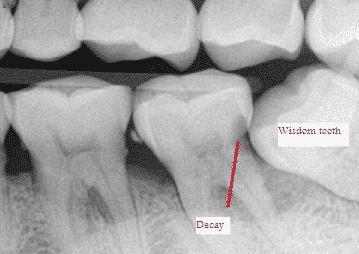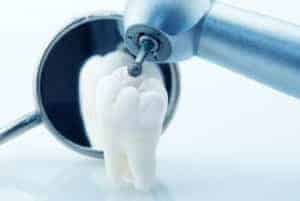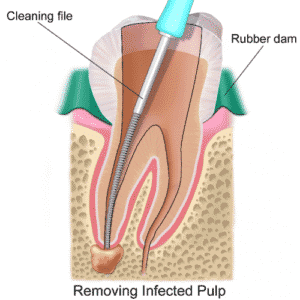
“Third molars, or wisdom teeth, affect many people in one way or another,” explains Dr. David Brusky. “Usually, people are told that their wisdom teeth need to be extracted, and there is good reason for this.”
Why to Get Wisdom Teeth Extracted
There are some cases where extraction is necessary or strongly recommended. These include:
Impaction: Sometimes painful, but not always, impacted wisdom teeth are blocked by other teeth or bone or can be tilted under the gums. In all of these cases, the third molars can’t properly emerge through the gum and need to be removed.
Infection: Also known as dentition difficilis, this condition refers to any infection around the wisdom teeth and necessitates extraction.
Pain: If the wisdom teeth cause ongoing pain, it’s likely best for them to be removed to prevent further problems. Sometimes, tilted or elongated third molars can also contribute to a painful bite as well. In this case, they will likely be removed as well.
Damage and decay: Known also as cavities or caries, tooth decay that involves dental nerves would make removal necessary. Even wisdom teeth that are not yet problematic have the potential to decay due to the difficulty in sufficiently cleaning this area of the mouth.
Caption: A patient displaying decay of the third molar.
Periodontal illness: Sometimes, treating and/or limiting the progress of gum disease can be a factor in determining wisdom tooth removal. Most people develop gum disease between the wisdom tooth and the next tooth forward (the second molar).
Cysts: These fluid-filled growths can cause potentially permanent damage not only to teeth, but also to surrounding bone and nerve tissue. In severe cases, tumors may also develop. If cysts or tumors are present, extraction will likely be necessary.
Caption: A patient with a cyst growing around the third molar.
Orthodontic treatment: At times, wisdom teeth may be removed to make room for other orthodontic work like braces.
At What Age Should People Get Wisdom Teeth Removed?
There’s no right or wrong age for wisdom tooth extraction per se, though removal at a younger age will be somewhat easier. This is due to the fact that the teeth’s roots are not yet completely developed, and the surrounding bone is less dense than that of older adults. Furthermore, younger people generally heal a bit faster.
“This is not to say that older people can’t get their wisdom teeth removed,” notes Dr. Brusky. “In fact, I regularly do third molar extractions in patients young and old alike.” Older adults might simply not have had the opportunity or means to have wisdom teeth taken out at an earlier age, and are only now able to seize the moment.
Also, situations can change: bites and tooth alignments can change, or crowding in the mouth can cause pain if teeth aren’t removed. Thus, there is no perfect age for getting one’s wisdom teeth out.
Do I Need To Be Sedated?
Patients who have fully impacted wisdom teeth generally get I.V. sedation at the Oral Surgeon’s office. However, partially or fully erupted third molars are often removed with local anesthetic only at our office. It really depends on a patient’s level of apprehension. Nitrous oxide (laughing gas) can help alleviate stress around the procedure and has no lasting side effects.
What Happens If Wisdom Teeth Aren’t Removed?
Only meeting with an experienced dentist can ensure that patients are getting the necessary treatment when it comes to wisdom teeth. However, there are some consequences that may follow if teeth are not extracted, particularly impacted ones. These include:
- Extensive tooth decay and cavities that can’t be filled due to their location in the mouth. Even teeth hidden below the gums can decay!
- Sinus pain, congestion, or pressure
- Damage to neighboring teeth due to painful collision with the teeth’s roots
- Disease and infection, particularly of the gums and the soft tissue surrounding the wisdom teeth
- Abnormal growths like cysts or tumors
- Cheek biting due to poor position
- Bite problems due to wisdom teeth interfering with the normal path of the closure of the jaw
If you’re concerned about your wisdom teeth, schedule an appointment with Dr. David Brusky today. He and his team will take care of your dental needs right away.







